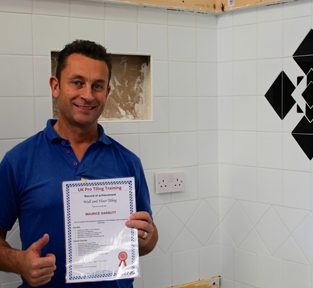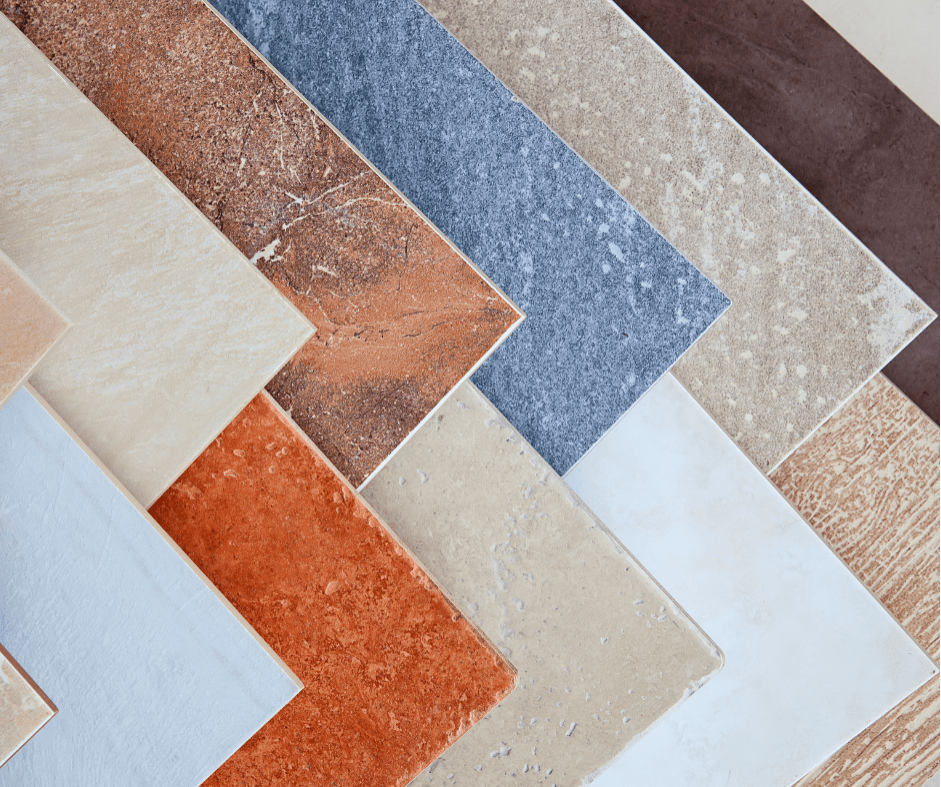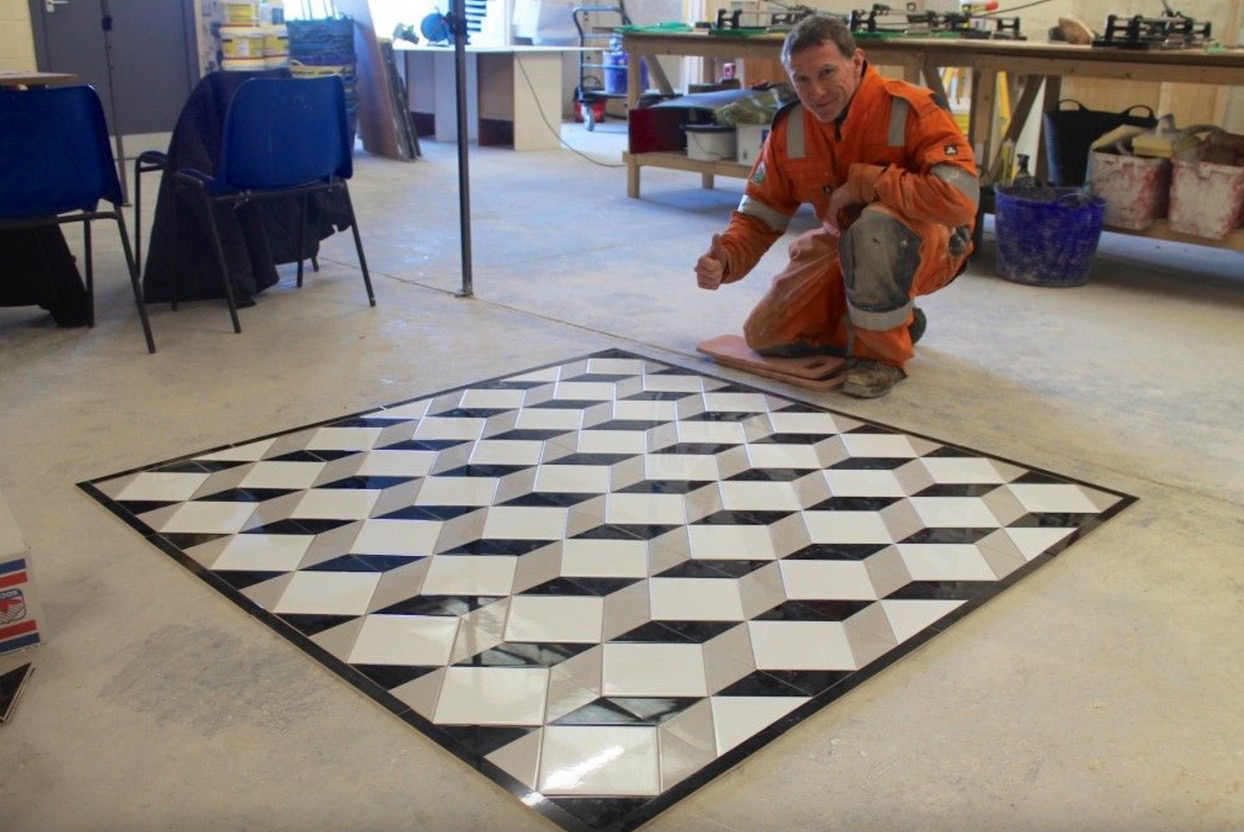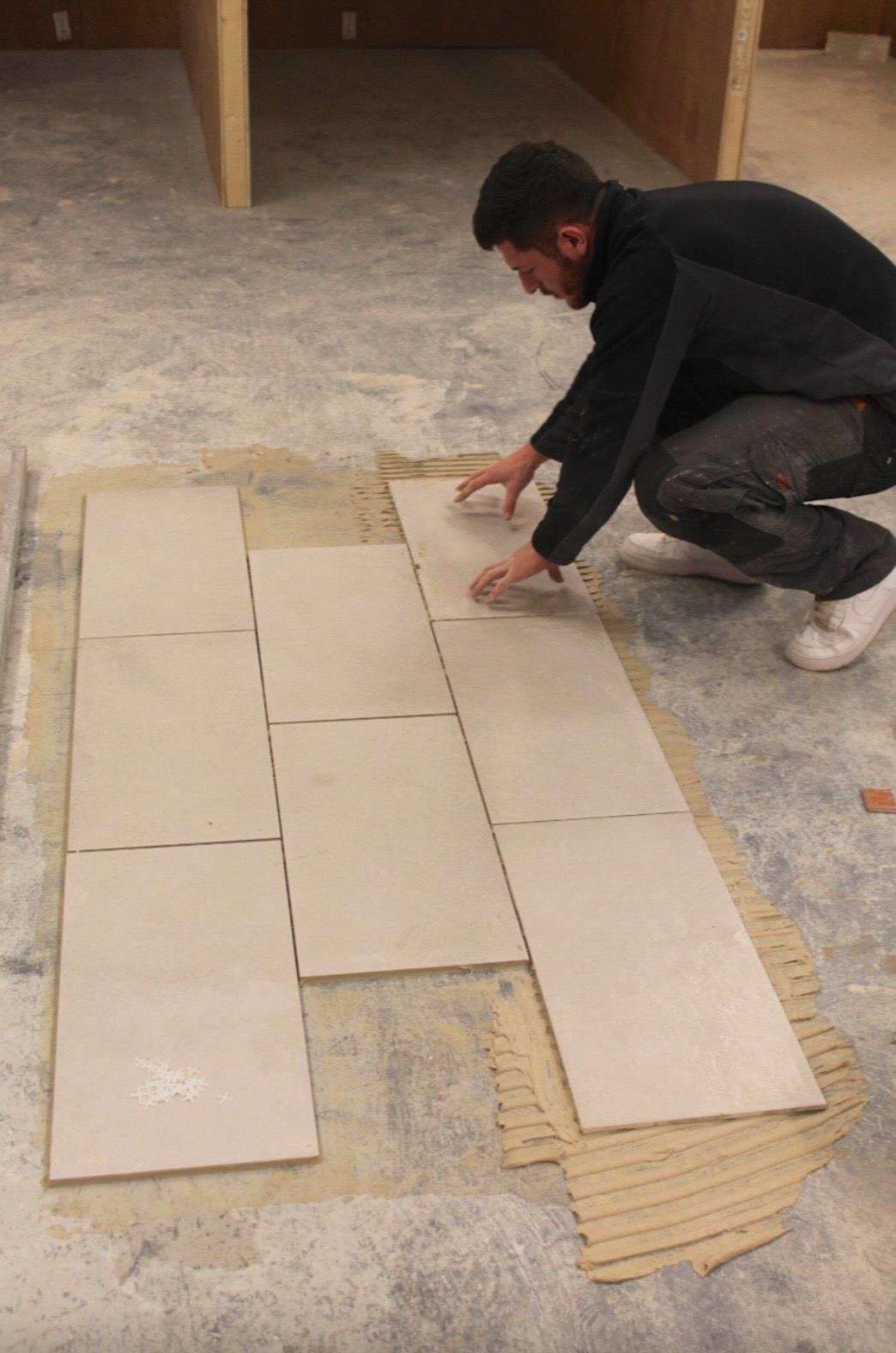10 tiling tools no tiler should be without
Whether you are completing a DIY tiling job or are working as a professional tiler, there are certain tiling tools that no project can be completed without.
More importantly, professional tilers should ensure they have the right equipment on hand to ensure a first-class finish. After all, a mediocre, DIY-like job is not going to cut it in the tiling profession.
Once you are trained in tiling and have the skills for tiling, you’ll need to make sure your equipped with the right tools before embarking on any paid project.
As well as a pencil, a tape measure and other obvious DIY essentials like a spirit level and PPE, such as safety goggles and safety shoes, you will need a handful of tools established purely for the tiling field.
As tiling experts and passionate about the industry, UK Pro Tiling Training share 10 tiling tools that no tiler should be without. We explain what they are and why they”re used.
Most of the tools can be bought from various stores online, including ScrewFix, Toolstation and Wickes.
Here’s our checklist of 10 tiling tools no tiler should be without:
- Grout Float
A grout float is used once the tiles have been applied to press the grout between the gaps in the tiles. It looks similar to a trowel and feature rubber “squeegee-like” parts that manipulate the grout.
Grout floats do not last for long due to the malleability of the rubber but are not hugely expensive to buy.
- Grout Sponge
A grout sponge is a dual-purpose sponge that is made specifically to remove any leftover grout from the tiles.
Use the grout sponge as you go to keep the tiling job looking professional. After all, when the customer is popping in and out of the room, they won’t want to see a whole wall of grout-marked tiles. Using the sponge can keep the room looking fairly polished and the customer feeling happy. At the end of the project, using a grout sponge will give the project a clean and professional finish.
- Notched Trowel
A notched trowel is essentially the only way to spread adhesive on your tiles. Made from steel, you’ll need to choose the right type of notched trowel for the tiling job in hand. A curved notched trowel is best for walls, while square notched trowels are usually used for floors. All notched trowels feature a notched edge and a smooth edge.
- Tile Nipper
Perfect for awkward edges and irregular areas of tiling applications, tile nippers are hand held, plier-like tools that allow you to cut the tiles into chunks in a controlled fashion.
- Rubber Mallet
A rubber mallet can be useful when gently knocking the tiles into place.
- Tile Cutters
One of the best type of tile cutters is the rail tile cutter that can be bought in various sizes to suit various types of tile. It is unlikely you’ll get any tiling job which does not involve cutting tiles, There are also electric tile cutters which are used for cutting sections out of tiles.
- Tile Spacers
Tile spacers are small pieces of plastic that are used to help you evenly space the tiles on application. Most spacers are cross-shaped and come in 1mm-6mm sizes. Use between tiles to ensure correct spacing.
- Mixing Paddle
Mixing paddles are designed to fit to most paddle drills and are used for mixing adhesive and grout. Any alternatives will not give a professional touch to your job, therefore always turn up to a tiling project with a mixing paddle, even if you think you could get away with using another stirring device.
- Bucket
Turning up with an old ice cream tub or washing up bowl is far too DIY when you”re a professional in the tiling industry. A bucket is essential for mixing and will save you a lot of time when it comes to clearing up any mess made. For everyday projects a 10L bucket will suffice, for bigger jobs, you’ll undoubtedly need a 25L bucket.
- Tile Drill
A tile drill is the only type of drill that will allow you to drill a hole into the tiles without breaking them.
More information on tiling tools from UK Pro Tiling Training
We offer extensive information on tiling tools at our courses at UK Pro Tiling Training. We are also on hand following the course if you have any questions about tiling tools, such as where to buy and which tools can be useful for particular projects.



